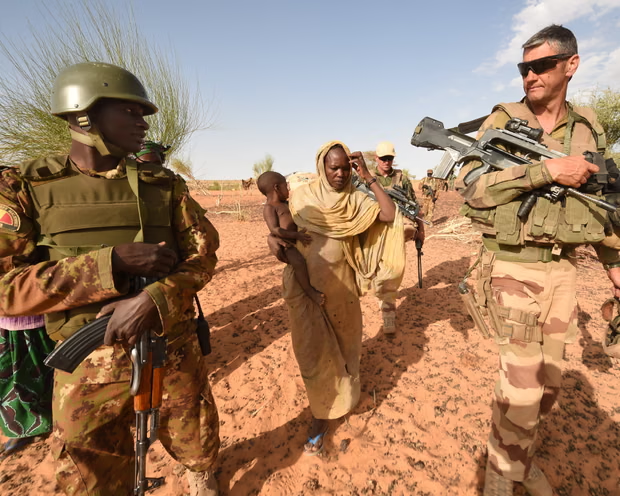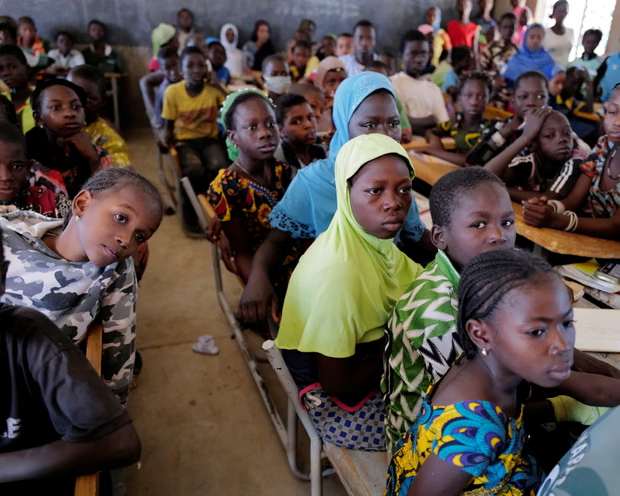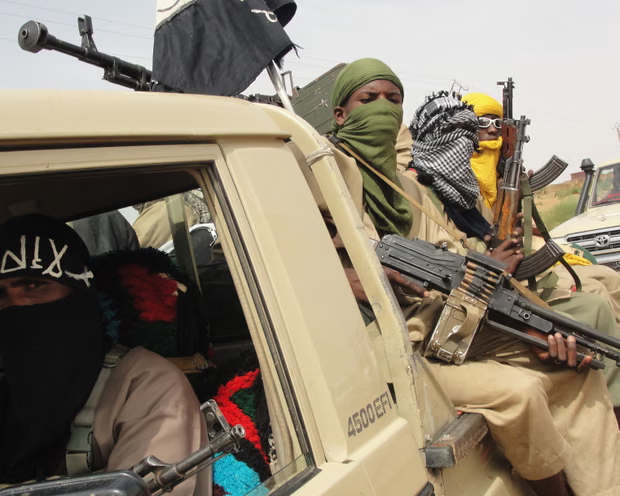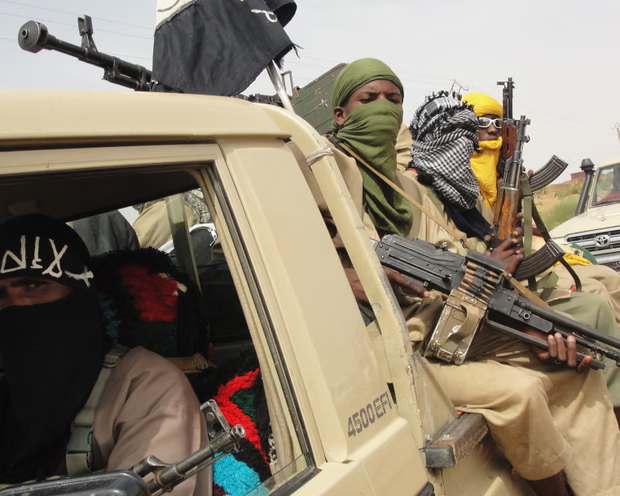More than a decade after jihadist insurgencies first erupted in Mali, thousands of refugees have fled the country, many of them women whose husbands are missing, captured, or presumed dead.
Amina, 50, is one such woman. Her husband, a gendarme, was deployed to fight militants before disappearing. Now, she lives in the sprawling Mbera refugee camp in Mauritania—home to over 120,000 Malians—trying to rebuild her life in limbo.
“We came here because of the conflict, leaving everything behind,” she murmured among members of Femme Resource, a women’s group supporting pregnant mothers and combating gender-based violence. “Many lost their husbands in the war. We arrived with nothing.”

Across the Sahel—a vast stretch from the Atlantic to the Red Sea—two decades of insurgencies and armed conflict have displaced millions. Weak governance, economic disparity, and the proliferation of weapons following NATO’s 2011 intervention in Libya have created fertile ground for militant networks.
The violence is no longer confined to Mali, Burkina Faso, and Niger. Between January 2021 and October 2023, jihadist-linked attacks surged in coastal West Africa, averaging 26 incidents a month across Benin, Ghana, Côte d’Ivoire, and Togo. One of the deadliest came in early 2024, when al-Qaida affiliate Jama’a Nusrat ul-Islam wa al-Muslimin (JNIM) killed 30 soldiers in northern Benin.
A diplomat in Cameroon, speaking anonymously, confirmed that Islamic State West Africa Province (ISWAP) units were moving across the Nigeria–Cameroon border, expanding their operations. Nigerian authorities have similarly warned of new jihadist cells emerging in the Middle Belt, while analysts caution that alliances between militias in Chad, Cameroon, and the Central African Republic—the so-called “triangle of death”—are deepening.

According to the UN, nearly 4 million people across the Sahel are now displaced, most within their own countries. Yet, cross-border migration is increasing as insecurity worsens. Host nations like Mauritania and Niger are overwhelmed, with minimal aid and infrastructure to absorb the influx.
The regional counterinsurgency response remains fractured. Mali, Burkina Faso, and Niger—now united under the Alliance of Sahel States (AES)—have turned away from Western-backed initiatives, including the G5 Sahel and ECOWAS, and leaned on Russian mercenaries for support. Analysts argue this shift reflects political defiance but also weak coordination against transnational threats.
“The southward spread of jihadism demands a genuinely regional strategy,” said Afolabi Adekaiyaoja, a Nigerian analyst with the International Centre for Tax and Development. “Right now, every country is fighting its own war.”
Mauritania, once a hotspot for extremist recruitment, has largely avoided attacks since 2011—a rarity in the Sahel. Scholars attribute this to a blend of religious outreach, local investment, and community-based intelligence.
The government offered conditional amnesty and theological re-education to repentant fighters while investing in border security, desert patrols, and rural development. Supported by European Union funding, Mauritania’s surveillance systems now include Starlink-powered communication posts and a revived camel corps. Villagers are encouraged to report unfamiliar newcomers, creating a tight community intelligence network.
“When someone new enters a village, people alert the authorities immediately,” noted Ulf Laessing of the Konrad Adenauer Foundation.
Yet this apparent stability comes with controversy. Human Rights Watch has accused Mauritanian security forces of torturing and sexually assaulting migrants and refugees in recent years—a charge the government denies, claiming improved detention conditions. Critics argue that Mauritania’s counterterrorism success is partly built on repression and silence.

Rumors persist of informal truces between governments and jihadist groups across the region. In Ghana, local whispers suggest militants are allowed to use border areas for logistics in exchange for sparing the country from direct attacks. Similar speculation has long surrounded Mauritania and Algeria, where militants allegedly visit family under the condition that they leave weapons behind.
The Mauritanian government has consistently denied such deals, though declassified U.S. intelligence from 2011 hinted at attempted negotiations between al-Qaida and Nouakchott.
Back at Mbera camp, refugees like Amina avoid discussing politics or alleged pacts. Their concerns are simpler—finding stability, safety, and answers about loved ones lost to the conflict.
“We just want to go home,” Amina said softly, her gaze fixed on the horizon that separates exile from the life she once knew.



